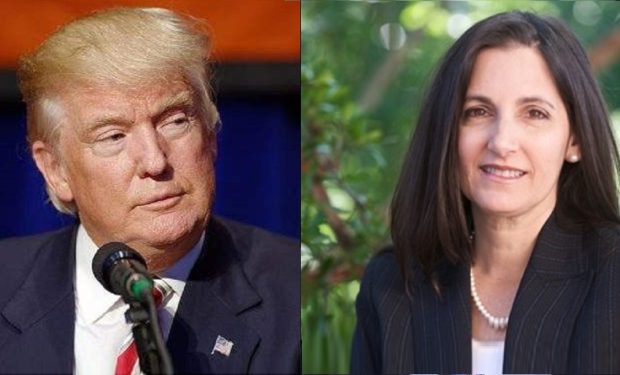Former President Donald Trump‘s legal team has filed a motion to dismiss the Special Counsel’s federal election fraud case against him in the District of Columbia by arguing that Trump has “absolute immunity” from criminal prosecution for actions that were performed within the “outer perimeter” of the president’s official duties.
Former U.S. Attorney Joyce Vance warns that the motion is “not a frivolous argument,” meaning the argument could — on its merits — be legally successful.
[NOTE: Trump’s lawyers have been reprimanded and fined by judges for bringing “frivolous” business in the past, with U.S. District Judge Donald M. Middlebrooks saying earlier this year that Trump filed “a lawsuit that should never have been filed, which was completely frivolous, both factually and legally, and which was brought in bad faith for an improper purpose.”]
But while Vance says the argument behind the motion to dismiss is not frivolous, she does characterize it as “flawed.” Immunity is a genuine argument to pursue, Vance concedes, but she concludes that “no matter how Trump’s lawyers try to dress up their argument, at bottom, it is that a president is above the law. And that’s not how our criminal justice system is meant to work.”
Note that Vance says how it is “meant to work” — the words representing a hopefulness on Vance’s part, since it is indisputably true that the justice system does not always function how it is “meant” to.
However, asserting that Trump’s conduct “does not fall within the core functions of the presidency or even within the remote edges of its periphery,” Vance says she is not compelled by the 52-page motion.
Yet Vance admits — worryingly for justice advocates — that “Trump has relentlessly used privileges and immunities to try and set himself above the law ever since becoming president.” When she follows up, regarding the motion, that “it shouldn’t work here,” it begs the question why not? If it has worked “relentlessly” so far?
The counter argument to the motion — or at least part of it — is that Trump’s duties as president did not include managing the election — not in the center of his job description nor on the “outer perimeter.” The other key piece of the argument against the former president’s absolute immunity claim in the case is that, in undertaking actions to change the election results, Trump was not acting as President Trump but as Candidate Trump, a position not protected by immunity.
Legal observers including Vance believe Trump’s realistic endgame isn’t a dismissal of the case but a delay in the trial, which is scheduled to begin on March 4.
